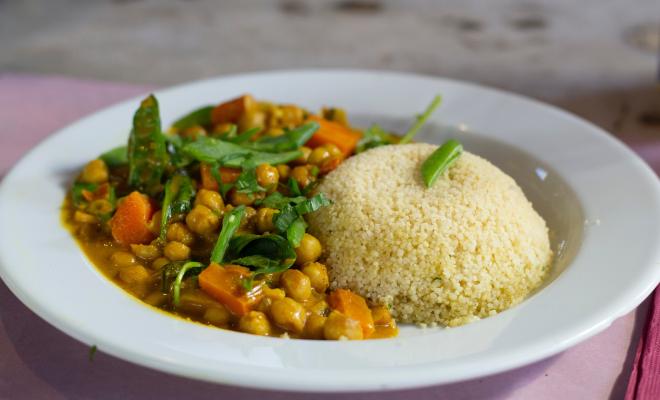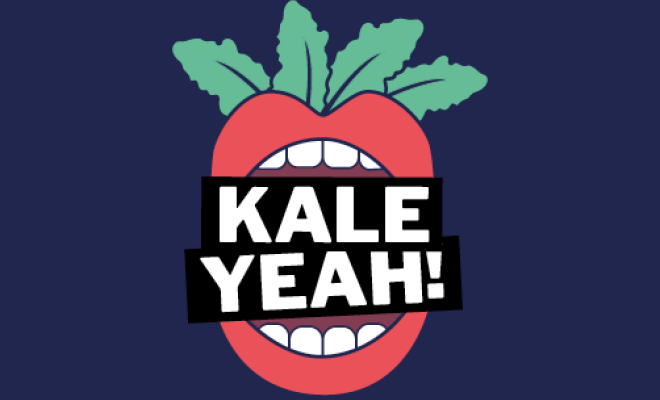23 Jun 2023
Menu design
It’s a good idea to make your menus a balance of affordable and premium options, comfort and healthy food, and familiar and new dishes.
When starting to shift to a more plant-based menu, there are some easy changes you could make that shouldn’t raise eyebrows if you’re still offering tasty dishes – for example, making all of your soups and salads meat-free. Adding more exciting plant-based sandwiches and wraps to your range should also be well received. Here’s some inspiration:
Embrace international cuisine, especially street food. A nice way to engage students could be to invite them to share their plant-based recipes from different countries or cultures.
Culinary tricks of the trade
Ensuring plant-based dishes are packed full of flavour and texture is key. Nobody wants to eat a bowl of bland mush or an unseasoned slice of tofu. If preparing plant-based food is new to you, you may find the following tips useful.
Taste
As well as sweet, salty, sour and bitter, there's the fifth taste, known as "umami". Umami gives food a rich, moreish depth, and is associated with the satisfaction of meat and cheese. It can sometimes be missing from plant-based dishes, which can create bland results. Take your dishes up a level by including these umami-boosting ingredients:
- tomato puree / tomato ketchup
- sun-dried or sun-blushed tomatoes
- mushrooms
- olives
- capers
- seaweed
- fermented foods eg sauerkraut and kimchi
- pickled foods
- miso
- soy sauce
- smoked paprika
- truffle oil
- vegetarian Worcestershire sauce
- yeast extract (eg Marmite)
- nutritional yeast flakes (eg Engevita).
Texture
How a dish feels in the mouth is as important as how it tastes. Nobody likes mouthful after mouthful of sloppy mush or dry crumble. Some of the most popular, go-to plant-based ingredients – hummus, falafel, aubergine, avocado, butternut squash and sweet potato – are delicious but soft, and so don’t provide chomping satisfaction! Ensure your dish has bite as well as texture (creaminess and/or crunch) to create a satisfying mouthfeel and a much more well-rounded eating experience.
To create creaminess, use:
- dairy-free milks, creams and yoghurts (cashew is especially creamy)
- nut butters
- silken tofu
- tahini (sesame seed paste)
- avocado, butternut squash, pumpkin and sweet potato – even though they don’t need much chewing, they add creaminess and can be pureed for use in creamy sauces.
To add crunch, use:
- beansprouts (uncooked)
- croutons
- toasted nuts and seeds
- fermented foods (eg sauerkraut and kimchi)
- pickled foods.
To provide chewiness, use:
- roasted/chargrilled vegetables
- wholegrains
- meat alternatives (see below).
Explore meat alternatives
Some customers will be looking for healthy wholefoods, while others will be craving comfort food and familiar favourites. There's a now a huge selection of meat-free burgers, sausages, chunks, slices and strips available for catering, with new ranges coming out all the time. Some are more convincing than others (and they're not always the healthiest option), but they're getting better and more popular all the time, and so are definitely worth trying.
As well as processed meat alternatives, these plant-based foods can be used to replicate and replace meat or fish:
- tofu (delicious when seasoned or marinated and cooked properly).
- tempeh (made from fermented soybeans – also needs marinating and is ideal in Asian dishes).
- seitan (made from wheat gluten – very high in protein and used to make "mock meats" in many restaurants).
- banana blossom (can be battered or deep-fried and used as a fish alternative).
- jackfruit (has a pork-like texture and can be used in curries, wraps, on pizza and in many other ways).
Vegan cheese
Long the subject of ridicule, vegan cheese has come a long way. As with other kinds of plant foods, there's now a massive selection, ranging from melting mozzarella to mature cheddar, from grated parmesan to feta for salads. Mostly made from coconut oil, they can also melt well in cheesy dishes and as a pizza topping (tip: sometimes the addition of a little liquid is necessary).
Artisan nut cheeses, in particular made from cashews and almonds, are also delicious and make a luxurious addition to a plant-based cheese board. Some aren't difficult to make, while others require certain cultures and probiotics – there's a wealth of information online about vegan cheese should you wish to explore this field.
Don't forget dessert
Pudding can be a big source of dairy products. There are several different varieties of plant-based creams now, as well as many dairy-free spreads that can be used just like margarine or butter. There are some great tips online showing how to "veganise" any desert recipe. Customers who are intolerant to dairy or eggs will also love these alternatives.
Rebalancing menus and recipes
Our rebalanced menu guide illustrates how to shift the focus of menus and recipes away from animal products and make them more plant-centric. It shows how simple swaps and substitutions can reduce a menu’s overall meat, fish and dairy content by more than 50%, while keeping them all on the menu each day. Suggestions include:
- reducing the meat or fish content of a dish by pairing it with a complimentary plant-based ingredient, for example soy-dressed pork and tofu, or seafood and shredded kale pie.
- substituting pulses for at least 25% of the meat content, for example lamb and lentil shepherd’s pie, or Mexican chilli with beef and beans.
- blending burgers by swapping at least 25% of the meat for finely chopped mushrooms.
Further resources and inspiration
If you'd like to develop your plant-based cooking skills further, we recommend Humane Society International’s Forward Food plant-based culinary workshops, presented by Chef Jenny Chandler.
Public Sector Catering’s Plant-Based Week features some great events and advice for catering professionals.
Knorr Professional has produced a booklet of plant-based recipes for catering.
If you're a customer of Vegetarian Express, you can access its Seed-Bank meat-free recipe database.
And lastly, when searching for recipes, don’t rely on the first recipe that pops up in your web search. Check out websites where the recipes are reviewed and rated. Abel & Cole has some delicious and creative plant-based recipes and BBC Good Food has a good vegan selection too. For more ideas, take a look at these chefs:




